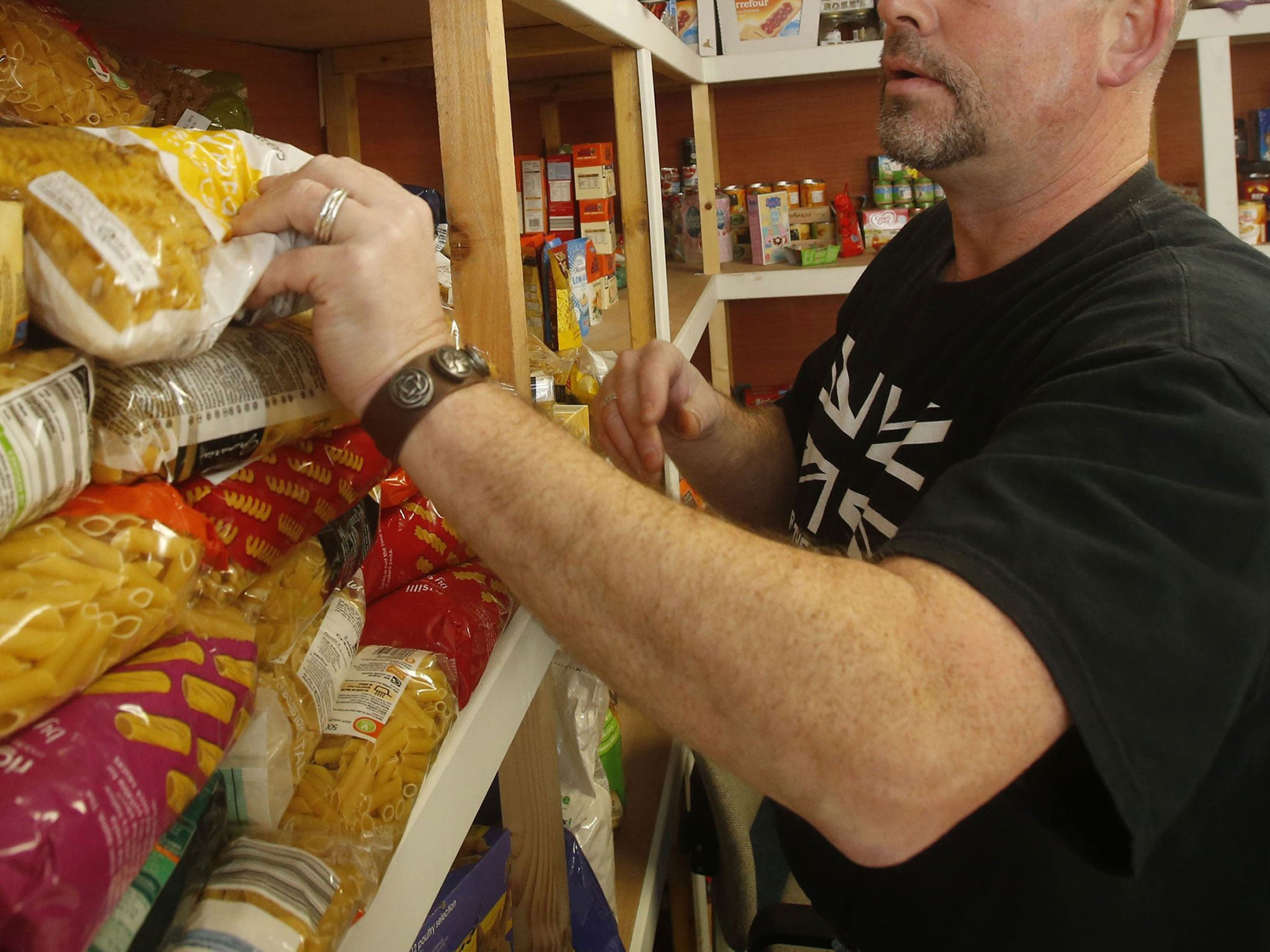Food bank usage at record high - and the true scale of hunger could be far greater
Trussell Trust reveals continued rise, but a separate report estimates more than half of the emergency food aid supplied in Britain comes from independent organisations not included in the charity's figures

Food bank usage has continued to rise for another year, according to figures from the country’s biggest provider, as new data revealed that hunger is most common in areas with high levels of disability and long-term illness.
Overall 1,109,309 emergency food packages were distributed by the Trussell Trust in 2015-16 – up slightly from last year. The charity, Britain’s leading food bank provider, said the figure was “one million too many” and urged the Government and the public not to accept the levels of food poverty in the UK as “the new normal”.
The average number of visits per food bank user in the past year was two, meaning that the number of people who had to rely on the charity is likely to be around 554,000.
A separate report by the All Party Parliamentary Group (APPG) on Hunger, published today, estimates that more than half of the emergency food aid supplied in the UK comes from independent food banks and other organisations not covered by the Trussell Trust’s figures – indicating that the true scale of hunger in the UK could be far greater.
The charity, which manages 424 food banks in the UK, gathers data from its outlets, which are manned by volunteers. Its audit shows that changes to and delays in accessing state benefit payments remain the most common reasons people turn to food banks.
New research carried out for the charity by the University of Hull has also mapped food bank demand, finding that areas with more people unable to work due to long-term sickness or disability have the highest usage.
Food banks also reported that insecure work arrangements and high living costs were key drivers of food poverty. The APPG on Hunger report found that, according to the latest figures, the poorest households require 41 per cent of their income to cover the costs of food, fuel and housing; an increase of ten percentage points since 2003, but a slight fall of one percentage point on 2013.
The group, led by Labour MP for Birkenhead Frank Field, also found worrying levels of hunger being reported at schools. A survey circulated to 19 schools in Birkenhead and 13 in South Shields uncovered two institutions where staff reported one in five children were arriving at school hungry.
Kerry McCarthy, Labour’s Shadow Environment, Food and Rural Affairs spokesperson, said that the of food banks was “a national scandal”.
“Food banks have become a truly shameful symbol of a Tory Government that is failing to stand up for ordinary people. While those at the top are given tax breaks others are struggling to get by,” she said.
“Emergency food aid should remain just that - food banks can never be allowed to become a permanent feature of British society.”
But a spokesperson for the Government said reasons for food bank use were “complex” and claimed it would be “misleading to link them to any one thing”.
“This Government is determined to move to a higher wage society, introducing the new National Living Wage that will benefit over 1 million workers directly this year, and we’re also spending £80bn on working age benefits to ensure a strong safety net for those who need it most. The vast majority of benefits are processed on time and the number of [benefit] sanctions have actually gone down.”
The Government intends to cut a further £3bn from the welfare bill by 2020.
David McAuley, chief executive of the Trussell Trust said: “Today’s figures on national food bank use prove that the numbers of people hitting a crisis where they cannot afford to buy food are still far too high. One million three day food supplies given out by our food banks every year is one million too many. This must not become the new normal. Reducing UK hunger will require a collective effort from the voluntary sector, Government, DWP, businesses and the public, and the Trussell Trust is keen to work with all these groups to find solutions that stop so many people needing food banks in future.”
Frank Field said the rise in levels of hunger in the UK was “very troubling”.
“There are at least two forces operating,” he said. “One is the breakdown in parenting, and the second is an increase in the numbers on a low income. It’s a tragedy if one of these strikes a child, but it’s an unbounded horror if a child is hit by both. How can the world’s fifth richest nation not know the extent of physical damage caused to its own children by a lack of food?”
Join our commenting forum
Join thought-provoking conversations, follow other Independent readers and see their replies
Comments